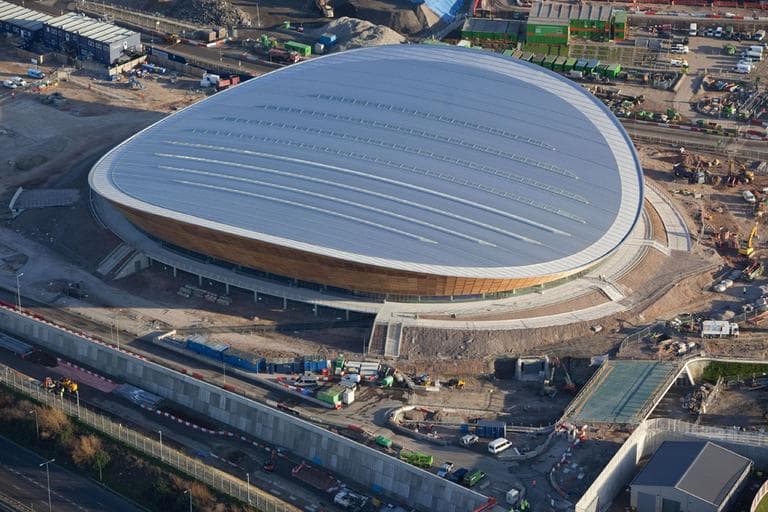Advertisement
How London Got The Olympics
Resume
Back when London was applying to host the 2012 Olympics, city officials knew the gridlocked streets were a weak spot in their application.
So when the International Olympic Committee members came to visit as part of the application, the Londoners mapped out their route, monitored their cars on TV sets in the London Traffic Control Center, and as Olympic officials approached traffic lights, voila! The Brits turned them green.
- Vanity Fair: London's Race To The Finish
As Michael Joseph Gross reports in Vanity Affair, that was just one of the hoops city officials jumped through in a sometimes farcical, yet successful bid to host this summer's games.
Catering To The Committee
London has promised the Olympic Committee there will be designated traffic lanes for committee officials and athletes during the games. And then there are the hotel rooms.
"London is responsible for setting aside a full 40,000 hotel rooms including at least 1,800 four and five star hotel rooms just for these special guests," Gross told Here & Now's Robin Young.
Cities aren't supposed to lobby the officials directly, but that doesn't stop them most of the time.
The Seeds Of Ambition
Gross says London's ambitions started with a woman named Tessa Jowell, the minister of Culture Media and Sport. She got it into her head that it might be a good idea to try hosting the Olympics and she asked a staffer to do a study.
"She received a one page memo that said it was an absolutely terrible idea," Michael Joseph Gross said. The memo reportedly said that the perceived benefits of hosting the Olympics rarely pan out.
"Barcelona is the one city that has had an unambiguously positive legacy from the Olympics," Gross said. "They had a massive regeneration project along the waterfront. But many other cities, such as Vancouver, have just been left with debts."
Despite the negative memo, Jowell pushed on. She met with British Prime Minister Tony Blair and pressured him to basically man up and put in a bid for the Olympics.
"She made her pitch, and she told this man... that she thought he was the kind of leader who would take a risk," Gross said. Blair said he'd think about it, and the next day he said yes.
Guest:
- Michael Joseph Gross, journalist
This segment aired on June 21, 2012.